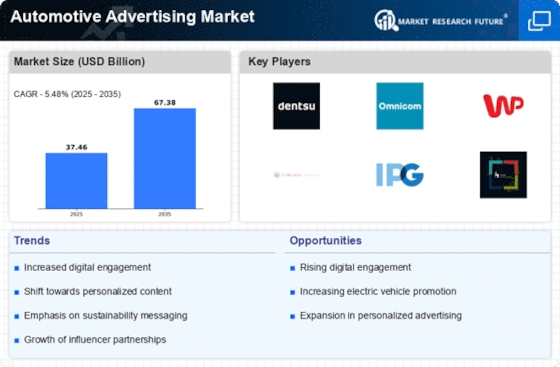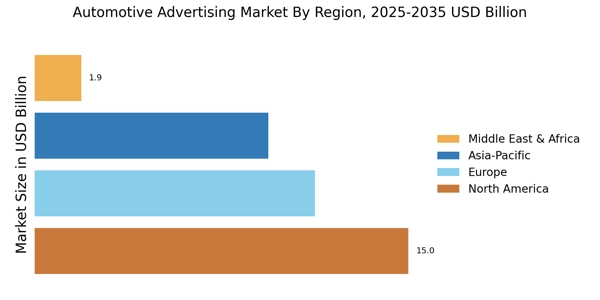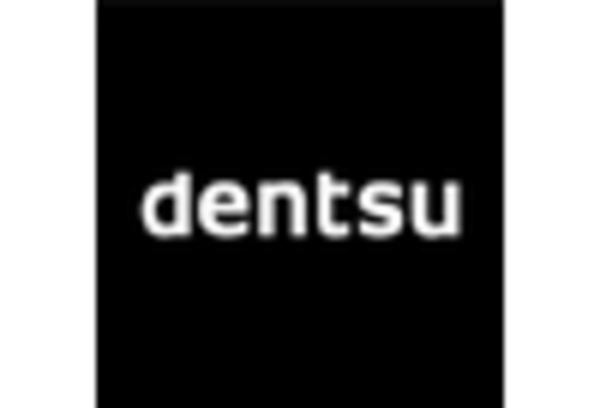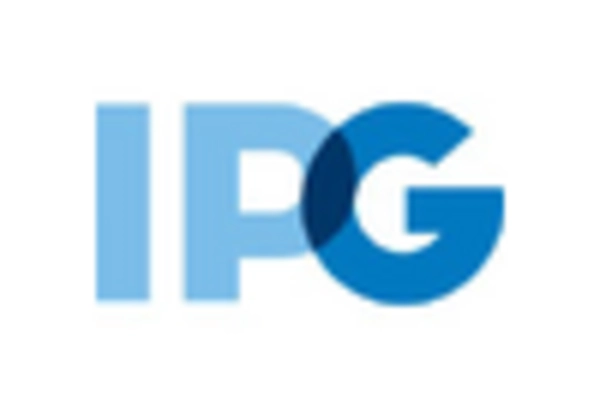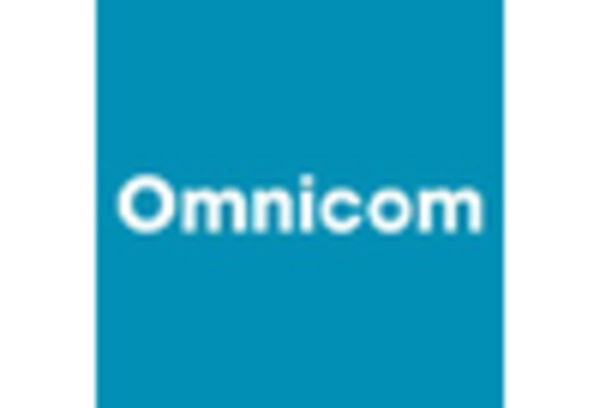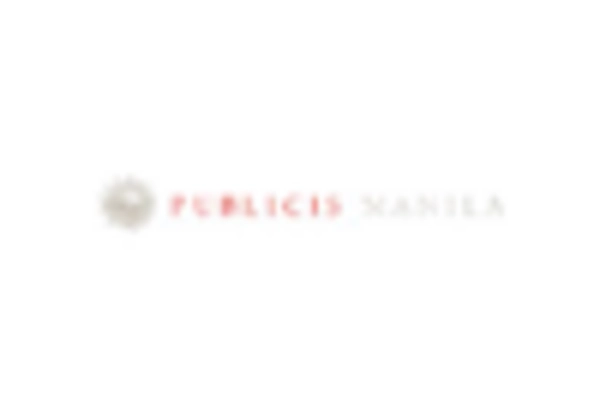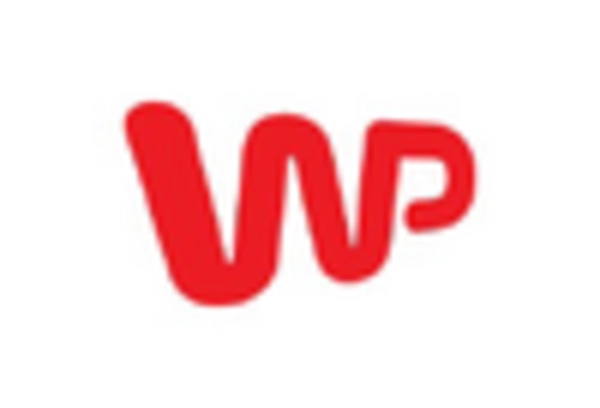Rise of Electric Vehicles
The increasing popularity of electric vehicles (EVs) is reshaping the Automotive Advertising Market. As consumers become more environmentally conscious, the demand for EVs is surging, prompting manufacturers to allocate substantial advertising budgets to promote their electric models. In 2025, it is projected that EV sales will constitute a considerable share of the overall automotive market, leading to a corresponding increase in advertising efforts focused on sustainability and innovation. This shift not only influences the types of messages conveyed but also the platforms utilized for advertising, as digital channels become increasingly vital in reaching tech-savvy consumers. Consequently, the Automotive Advertising Market must adapt to these evolving consumer preferences.
Consumer Demand for Transparency
In the Automotive Advertising Market, there is a growing consumer demand for transparency and authenticity in advertising messages. As consumers become more discerning, they seek brands that align with their values and provide clear information about their products. This trend is particularly evident in the context of sustainability and ethical practices, where consumers are increasingly scrutinizing the claims made by automotive companies. In 2025, it is expected that brands that prioritize transparency in their advertising strategies will foster greater trust and loyalty among consumers. Consequently, the Automotive Advertising Market must adapt to this shift by ensuring that their messaging is not only compelling but also credible and honest.
Emergence of Influencer Marketing
The rise of influencer marketing is significantly impacting the Automotive Advertising Market. Influencers, particularly those in the automotive niche, have the ability to reach vast audiences and create authentic connections with consumers. In 2025, it is projected that influencer partnerships will become a standard practice for automotive brands seeking to enhance their visibility and engagement. This approach allows brands to leverage the trust that influencers have built with their followers, thereby increasing the likelihood of conversion. As a result, the Automotive Advertising Market is likely to see a shift in advertising strategies, with a greater emphasis on collaborations with influencers to effectively communicate brand messages and drive sales.
Growth of Online and Mobile Advertising
The Automotive Advertising Market is witnessing a significant transition towards online and mobile advertising platforms. With the proliferation of smartphones and high-speed internet, consumers are increasingly engaging with automotive content through digital channels. In 2025, it is anticipated that digital advertising will surpass traditional media in terms of expenditure, reflecting a broader trend in consumer behavior. This shift necessitates that automotive brands develop robust online strategies to capture the attention of potential buyers. Moreover, the integration of social media advertising is becoming essential, as platforms like Instagram and Facebook provide targeted advertising opportunities that resonate with younger demographics. Thus, the Automotive Advertising Market is likely to continue evolving in response to these digital trends.
Technological Advancements in Automotive Advertising
The Automotive Advertising Market is experiencing a notable shift due to rapid technological advancements. Innovations such as artificial intelligence and machine learning are enabling advertisers to create more personalized and targeted campaigns. For instance, data analytics tools allow for real-time tracking of consumer behavior, which can enhance the effectiveness of advertising strategies. In 2025, it is estimated that the use of AI in advertising will account for a significant portion of the market, potentially reaching a valuation of several billion dollars. This trend suggests that companies investing in technology-driven advertising solutions may gain a competitive edge in the Automotive Advertising Market.


